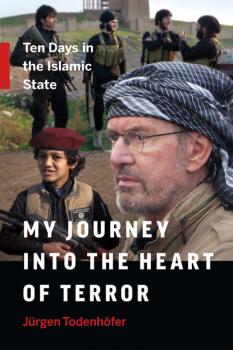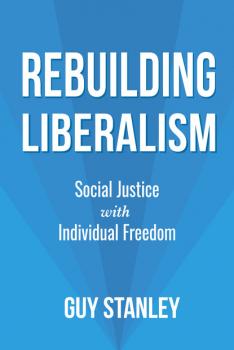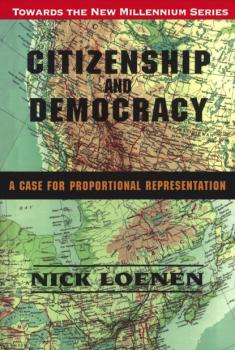ТОП просматриваемых книг сайта:
Зарубежная публицистика
Различные книги в жанре Зарубежная публицистика, доступные для чтения и скачиванияАннотация
Examines the groundswell of grassroots movements transforming government in Canada today, and how these form a nationwide movement Grassroots movements related to environment, citizens groups, marginalized, unions, and economic justice Looks at Canadian political history through the lens of elite power and popular revolt Argues these movements are leading to a new kind of democracy where the people truly participate Author is a Governor General’s Literary Award–winner and author of The New Urban Agenda , Shantymen of Cache Lake , Casa Loma , and Hamilton: A People’s History Author is an urban issues writer, community activist, and is well-connected in municipal politics
Аннотация
An alarming and enlightening first-hand account of what’s really going on behind the borders of the Islamic State.ISIS, IS, the Islamic State. The name is chilling. The images are horrific. This is a group that beheads journalists—and yet one, the German Jürgen Todenhöfer, went out of his way to get an invitation to visit ISIS fighters in Mosul in 2014 to ask them to explain their beliefs. This book is the result of his conversation. My Journey into the Heart of Terror: Ten Days in the Islamic State shows how the organization grew from its al-Qaeda roots and takes a harsh look at the West’s role in its past and today. Along the way, Todenhöfer offers startling insights into what ISIS thinks, what it wants—and what must change if it is to be defeated. Only by understanding, Todenhöfer believes, can we move forward and combat ISIS’s radical, violent interpretation of Islam and the terror and destruction it brings.
Аннотация
The author has consulted for businesses and governments on public policy and taught international management at American and Canadian universities Examines the history of liberal ideas over the past 200 years Proposes the changes required to overcome major limitations like economic policy and preparing for technology disruption
Аннотация
A timely oral history of the resurgent left wing and the youth vote in Canadian politics Explains how left-leaning, younger and urban Albertans found common ground with disillusioned Conservative voters weary of a dysfunctional dynasty in Alberta, and why this could be good for everyone Book moves from the municipal level, with the election of Calgary mayor Naheed Nenshi, to the provincial level with Notley and the NDP, ending on the national level with the triumph of Justin Trudeau’s Liberal Party, and examines how these were part of a chain reaction Argues that Alberta was never politically stable, and instead shows the beginning of discontent in the province Authors are well-known journalists and have authored various political books
Аннотация
Not a day goes by in which the police do not figure prominently in the news. Whether it be as investigators of a rural homicide, or as the subjects of a debate on police chases, the police are ever-present. They are news. The public's fear of crime and the «law and order» agenda prominently advanced by many politicians make Police a particularly topical collection of original essays that examine developments and issues of public concern relating to Canada's municipal police. These essays address such issues of public debate as police regionalization, the role and militancy of police unions, the proliferating use of police tactical units, facts and fictions of community policing, stress symptoms such as divorce among serving police officers, and the role and career prospects of women in policing.
Аннотация
It wasn’t so much a big blue machine that chugged its way across Ontario’s political landscape in the spring of 1995 – it was more a big purple bulldozer driven by leader Mike Harris and a new breed of Tories. Gone were the pinstripes and the cigar-chomping backroom boys of the forty-two years of Tory rule. These Tories were young, hip, and they were riding the wave of their Common Sense Revolution, a platform launched a year earlier. Still, there were only a few who thought the PCs stood a chance of winning the Ontario provincial election. Though Bob Rae’s NDP government was foundering, Lyn McLeod and the Liberals were holding what looked like a steady two-to-one lead in the polls. Relying on a combination of video tapes, clever advertising, and a brilliant campaign plan, the Harris team turned it all around, pulling off one of the most stunning upsets in Canadian political history. Right Turn tells the story.
Аннотация
This book is part of the Towards the New Millennium Series, featuring the works of thoughtful Canadians who are profoundly interested in the future of Canada and the world. Most democracies do not use Canada's «first past the post» voting system. To give a party more seats than its share of the popular vote warrants is deemed undemocratic by most. Such democracies use proportional representation to ensure a party's seat-share does not exceed its vote-share. Former MLA, Nick Loenen, examines what proportional representation can do for Canadian politics. He finds that a change to proportional representation holds the potential to involve citizens more meaningfully and give political parties a more significant policy development role. It would also move power from the prime minister's office to Parliament, and from the premiers to provincial legislatures, shifting the focus in politics from leaders, style and images, to parties, principles and platforms. Instead of the adversarial politics of confrontation, which aim to exclude and eliminate political opponents, proportional representation holds promise for a consensual, cooperative style of governing that includes a broad spectrum of political diversity. The book also counters many popular misconceptions about proportional representation. It traces Canada's most intractable political problems such as national unity, high taxation, government over-spending, excessive party discipline, the concentration of power in our leaders, and our peculiar archaic voting system. The end product is the most detailed analysis of the effects of proportional representation on Canadian politics ever published.
Аннотация
If humanity has learned anything from the horrors of the war against terror, it is that our one hope is democracy. The final goal of our country’s actions at home and abroad is the preservation of democracy. This is the lens through which our policies should be discerned, dissected, and amended. Borovoy argues that Canada has pursued an ethically cockeyed war against terror. We have been needlessly dovish abroad and excessively hawkish at home. In order to use military force abroad, the government fussed over the need for UN approval. At home, however, there are no such restraints: without even asking a court, the government may effectively deprive certain perople of the right to make a living. As the author summrizes: «Internationally, key fallacies stem from an undue respect for a rule of law that does not exist. Domestically, key fallacies stem from an undue neglect of a rule of law that does exist.»
Аннотация
Canadian politics is/are not well understood, no authority being prepared to say whether it/they is/are singular or plural. Canadian Politics Unplugged bravely breaks new ground in ignoring this question. The book concentrates on the central problem of democracy in a country that is too big to digest without getting gas. Readers are assured that the authors have studied Canadian politics for years, from a safe distance, and enjoy the unique perspective of never having been elected to high office, low office, or any place where wearing shoes is mandatory. Canadian Politics Unplugged is Whalley and Nicol’s fifth successful collaboration.
Аннотация
For the past ten years, human rights language has increasingly been employed by Armenian citizens when interacting with state actors in public spaces to protest government wrongdoings and press for change. This book examines the citizens’ exercise of their civil and political rights to put up claims regarding their social, economic and other rights through collective action as a platform for their claims-making. Through the research of key human rights actors, this book explores the ways in which universal human rights are debated, practiced, violated and experienced in Armenia. It reveals significant transformations with regard to both perceptions and practices of the notion of ‘a rights-bearing citizen’ manifest in speech and action, confrontations and interactions in ‘The Street’.










